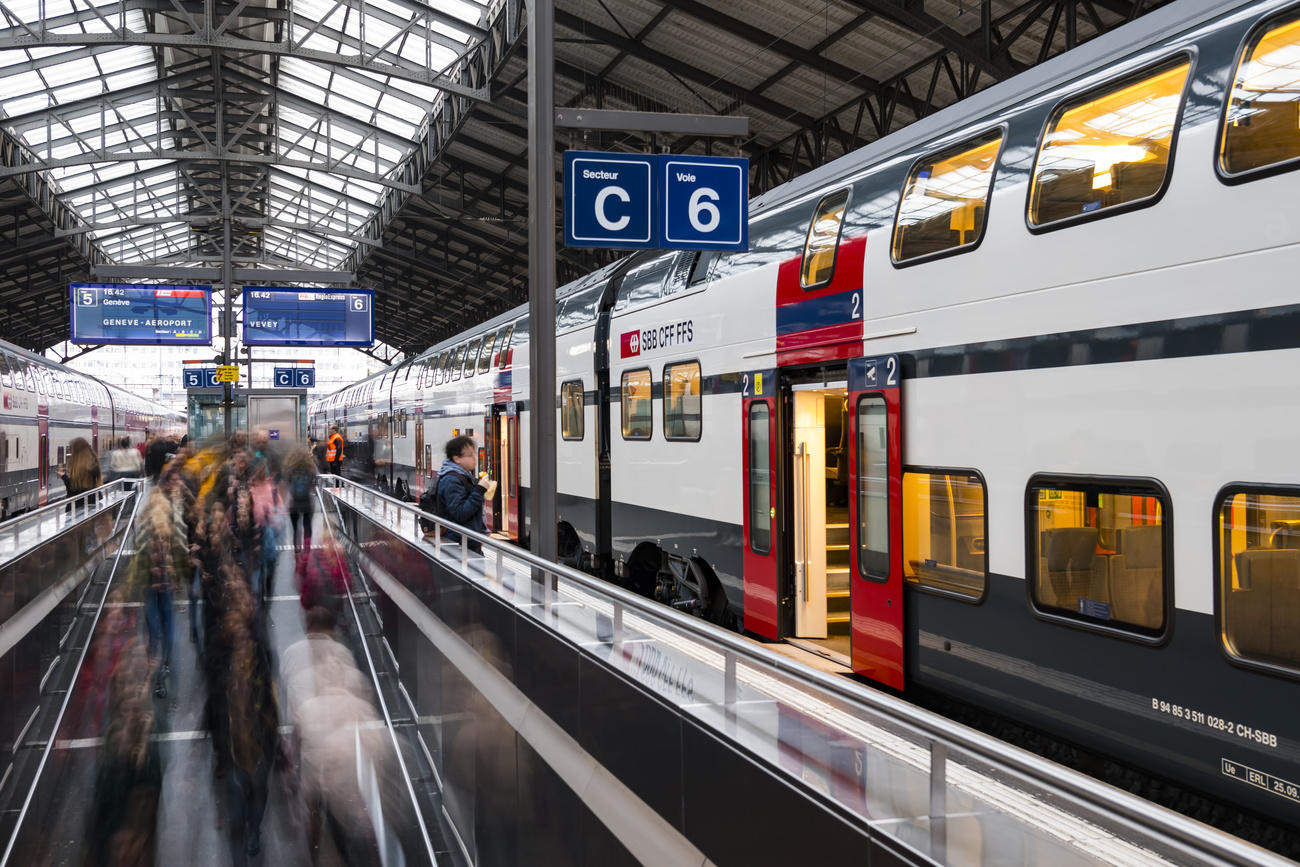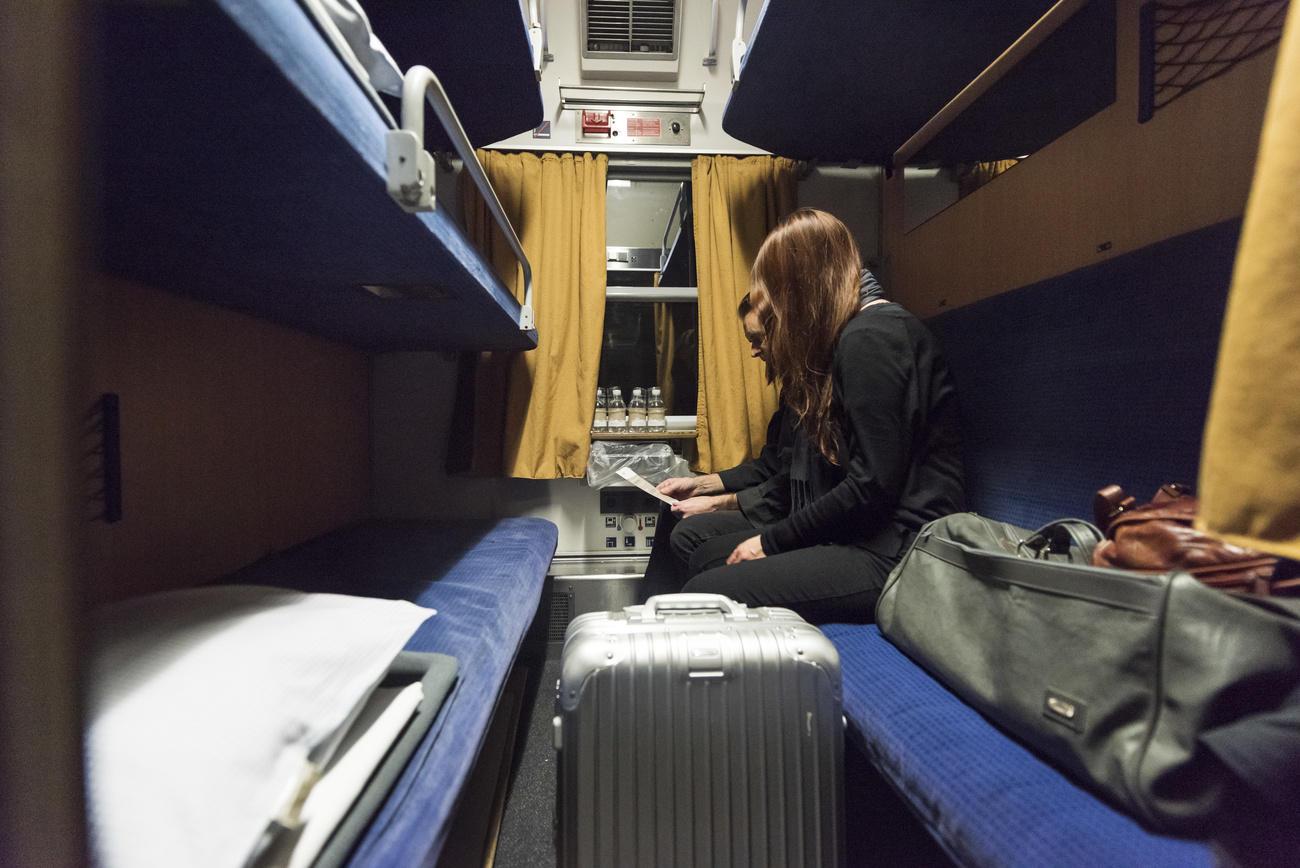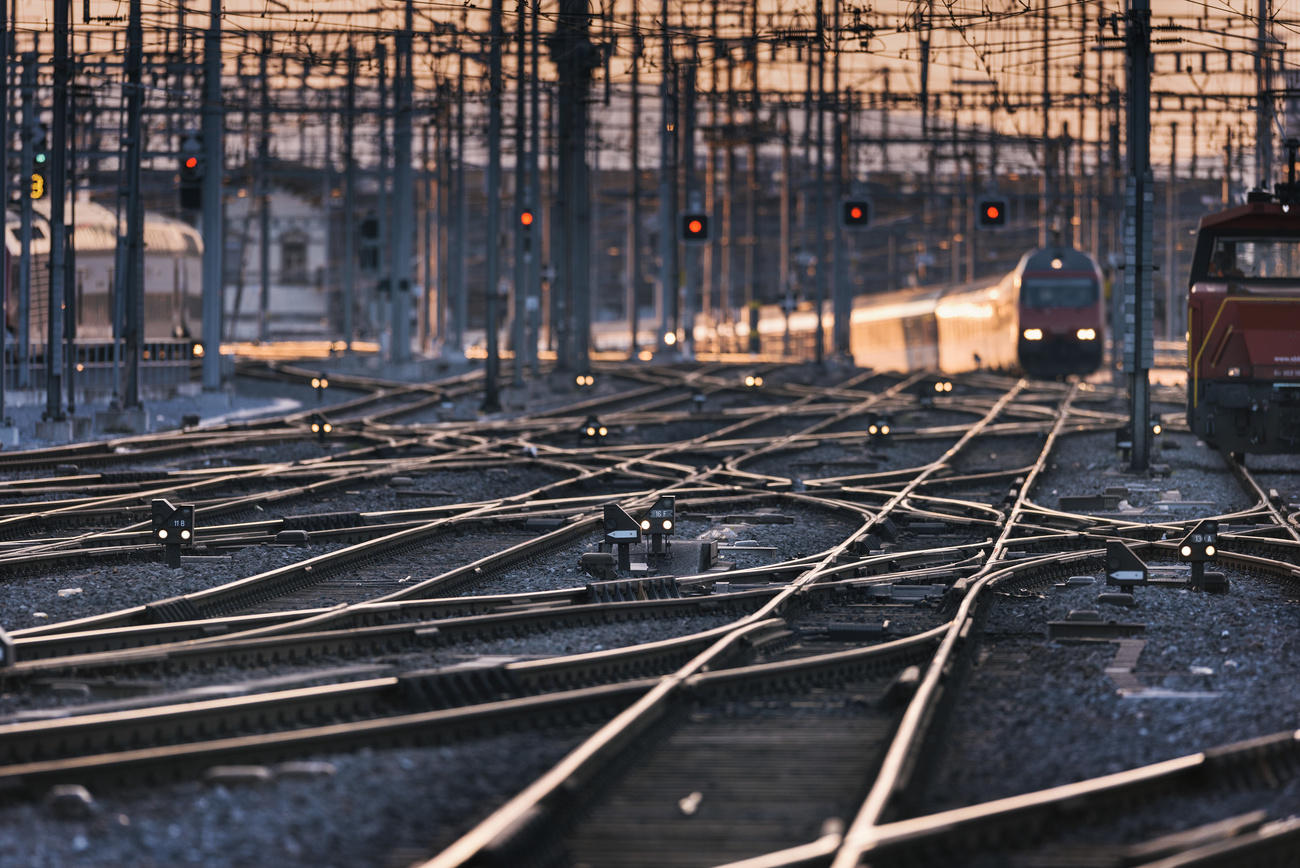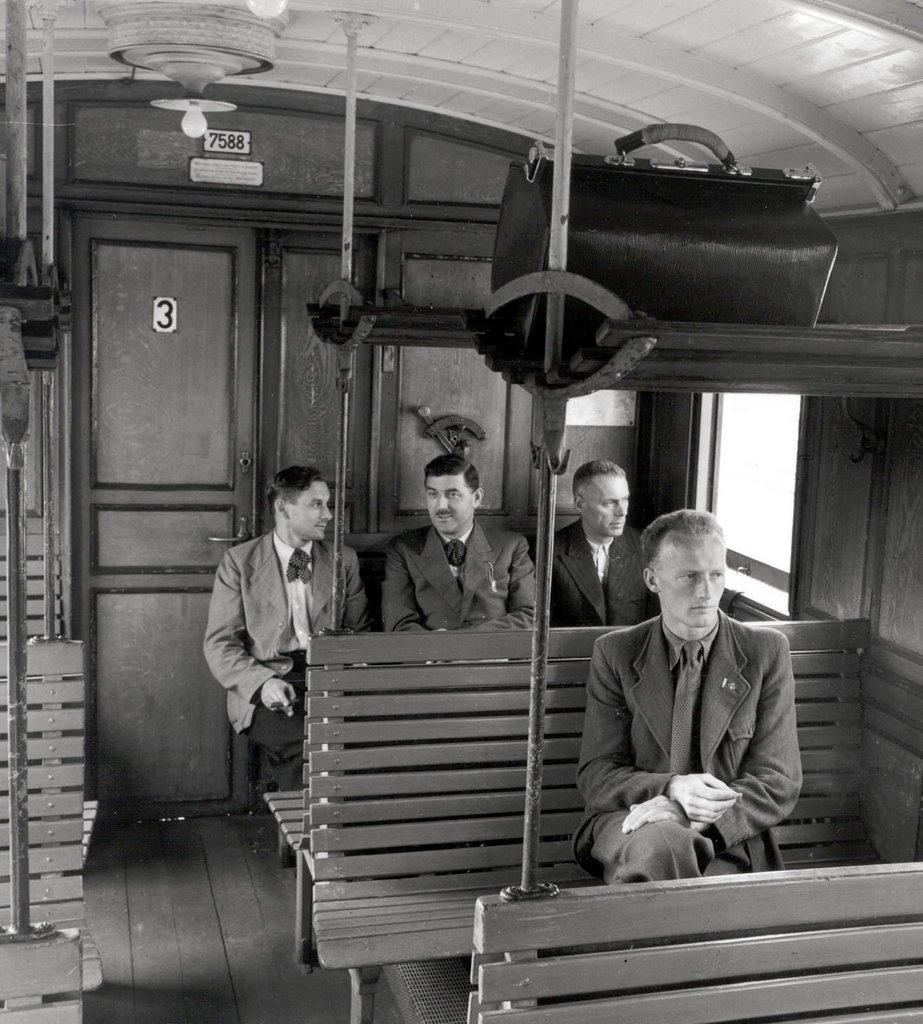Are Swiss trains becoming less punctual, pricier and more dangerous?

The Swiss Federal Railways is the most efficient in Europe in terms of passengers, punctuality and safety. However, there is no shortage of critics who say the situation is deteriorating. Do they have a point?
Switzerland has one of the largest and most extensive rail networks on the continent, with a total length of around 5,100 kilometres. Some 3,200km of this is operated by the Swiss Federal Railways. Founded in 1902, the former federal organisation became a public limited company in 1999.
The Swiss rail network is the best in Europe in terms of number of passengers, train punctuality, passenger kilometres travelled and accidents, according to the European Railway Performance IndexExternal link. However, the statistics conceal a growing discontent, among both passengers and staff. This will be a challenge for whoever replaces CEO Andreas Meyer, who is stepping down at the end of 2020.
Passengers and train kilometres
Each day up to 1.25 million passengers use Federal Railways trains. With the introduction of the synchronised timetable in 1982, the number of passengers has continually increased. This year more than 450 million passengers will travel on the Federal Railways.
With an average of 2,451km per capita per year, the Swiss travel the most by train in all of Europe.
Trains and infrastructure
The growing consumer demand has been accompanied by a growing number of trains. Every day more than 10,000 trains trundle around the Federal Railways network, with 83% of them carrying passengers.
Despite recent work, the rail network is again reaching capacity on numerous stretches. As part of a 2035 development plan, parliament has approved an investment of almost CHF13 billion ($13.1 billion).
Prices
However, the expanding network comes at a cost, which is passed on to passengers. Travelling by train from Bern to Zurich, a route that covers about 100km in less than an hour, currently costs CHF51 – that’s CHF20 more than in 1990.
Price increases have also applied to the GAExternal link, the general subscription for unlimited travel on Federal Railways trains and most other public transport in Switzerland. The GA has doubled in price over 30 years.
Punctuality
More than 90% of passengers reach their destination on time. But the Federal Railways’ statistics should be read with caution: they’re based on the percentage of passengers who reach their destination on time, not the number of trains that are punctual – or not.
Another statistic comes to a different conclusion: on many stretches, more than 20% of trains are more than three minutes late. As a result of political pressure, the Federal Railways is set to introduce a new system of compensation in case of delays.
Safety and accidents
Delays aside, passengers can be satisfied with the safety of the Swiss rail network. While the number of derailments has remained pretty much the same over the years, the number of collisions involving trains has decreased significantly since 2012.
However, the recent accident in which a train conductor died after getting stuck in a door put the spotlight back on train safety.
In recent years the quality of service has suffered from countless cost-cutting programmes, claims the union for transport workers. The transport commission of the House of Representatives has also called on the Federal Railways to pull its socks up regarding normal operations and maintenance of infrastructure.

More
How to behave on a Swiss train
Translated from the Italian by Thomas Stephens

In compliance with the JTI standards
More: SWI swissinfo.ch certified by the Journalism Trust Initiative













You can find an overview of ongoing debates with our journalists here . Please join us!
If you want to start a conversation about a topic raised in this article or want to report factual errors, email us at english@swissinfo.ch.